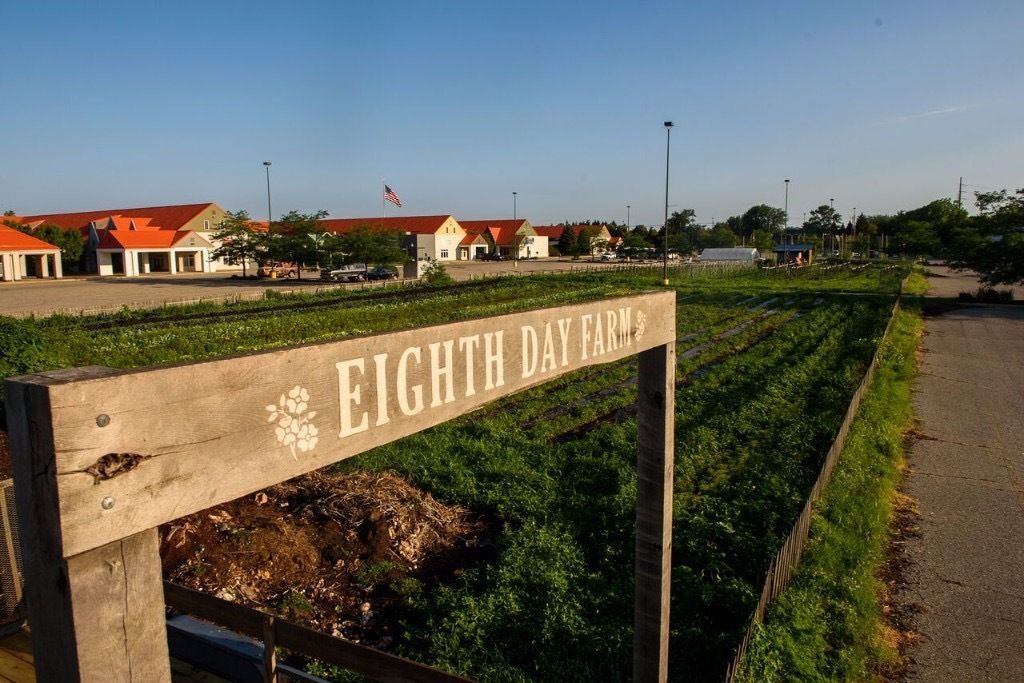
“The soil is the great connector of lives, the source and destination of all. It is the healer and restorer and resurrector, by which disease passes into health, age into youth, death into life. Without proper care for it we can have no community, because without proper care for it we can have no life.”
― Wendell Berry, The Unsettling of America: Culture and Agriculture
Growing up on a dairy farm in Iowa, I quickly learned about the value of soil. I could see its life-giving force, its resilience, and also its fragility. Even my “income” as a child came from the soil as I sold nightcrawlers to local fishermen. Needless to say, I had a deep connection to the land. My journey with the land took me to Iowa State University in a time when agriculture was changing very rapidly. GPS, GMOs, and glyphosate-resistant crops were beginning to make their breakthrough on the ag stage. They were sold to us as the answer to sustainability. I felt that I was to adopt that way of life or get out. Not fully understanding my unsettledness with modern agriculture, I took a break.
A famous quote says, “You can take the boy off the farm but you cannot take farm out of the boy.” That was true for me. I went to seminary and spent the next decade figuring out how my backgrounds would intersect. I found a home in urban Agriculture. Not fully understanding my faith journey was leading me to a new kind of farming community.
The community I am a part of now is leading a small nonprofit in Holland, Michigan called Eighth Day Farm. We sell Certified Naturally Grown vegetables and collect food waste from local residents and businesses to make the soil we grow in. In short, our focus is to love the land and love people. Farms like ours are popping up all over cities and vacant lots and other underutilized spaces around the country. These spaces can be great for growing food, and–based on their proximity to where most people live–are great for building community.
Our flagship farm is located where two acres of asphalt used to be in the middle of an old outlet mall parking lot. Today, through caring for soil, it annually generates over $180,000 of earned income to pay for staff and other programs. In addition to over $15,000 in vegetable donations to local pantries, we grow vegetables to distribute through a 115 member Community Supported Agriculture (CSA) program, where members receive 22 weekly allotments of seasonal vegetables throughout the growing season. We also sell our produce at the Holland Farmers Market. Through both outlets, we are able to connect the best of the land directly with the consumer. And best of all, the food does not have to travel more than a few miles.
We do not own our land, which allows us to function debt-free, but it makes us land insecure. Our underutilized space will become an expensive, sought-after property, and we will one day be left to find another location. Fortunately for us, we have a community who believes in us and will rally to find a solution when the time arises. But for many like us who desire to live in the urban environment and do what we do, the soil may not be as accessible to them. Modern agriculture systems and supports in America are not set up to intensively grow a diverse set of crops on a more expensive, small, urban space using mostly hand tools.
Fortunately, urban agriculture has grabbed the attention of many lawmakers. It will be some time before federal and other programs catch up to support small urban farms like they do the rural farms. Urban farms would benefit from catered funding programs to the food we grow and the soil we grow it in. Most importantly, support of urban farms will continue to strengthen the urban communities where most of the modern world lives.
Until that day, it is up to communities to be the solution and support urban farms. Join a local farm CSA program or go to a farmers market to find us. Many of us take volunteers and would love to have you be a part of our story. You might get some delicious healthy food, and better yet, you might find a strong and vibrant community to be a part of.

